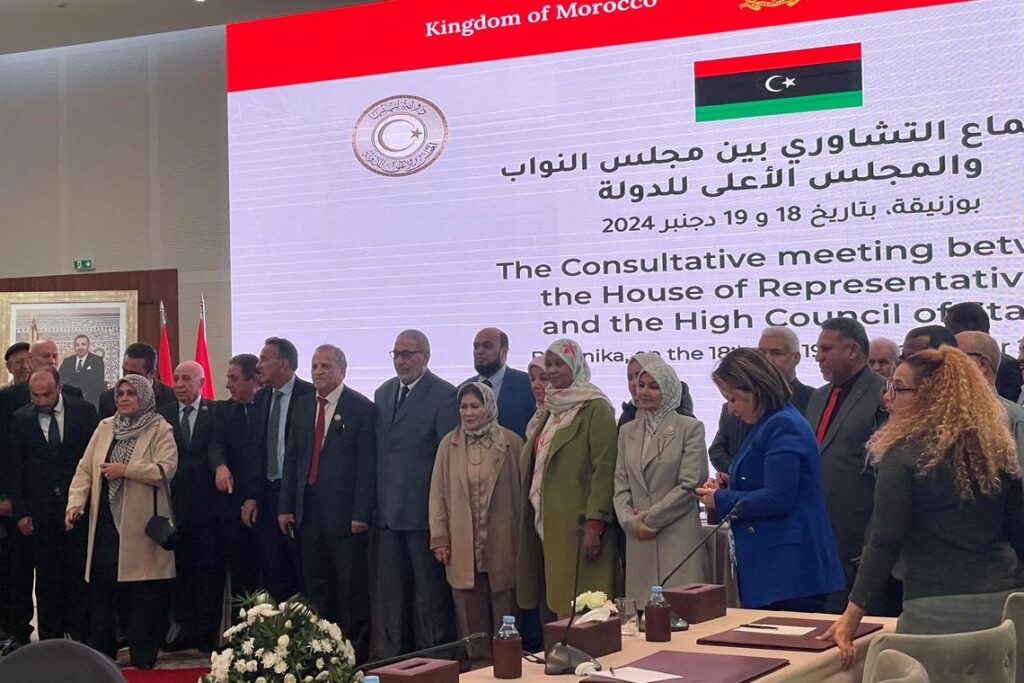Libya’s warring factions have reached an agreement to collaborate with the United Nations to resolve the country’s prolonged political stalemate. In talks held in Bouznika, near Morocco’s capital Rabat, representatives from Libya’s rival legislative bodies committed to forming a unity government and undertaking key institutional, financial, and security reforms.

The discussions brought together the High Council of State, based in Tripoli in western Libya, and the House of Representatives, located in Benghazi in the east. Both factions pledged to work alongside the United Nations Support Mission in Libya (UNSMIL) to pave the way for long-overdue elections.
Stephanie Koury, the U.N. Deputy Special Envoy for Libya, addressed the U.N. Security Council to outline a new advisory committee under UNSMIL. The committee aims to propose solutions to Libya’s electoral challenges and develop a roadmap for holding elections.
“The committee will consist of experts and respected figures, representing Libya’s diverse political, social, cultural, and geographical components,” Koury said. She emphasized that the committee’s role is not to make decisions but to provide actionable options for Libyan leaders to consider.
Libya descended into chaos following the 2011 NATO-backed uprising that ousted and killed longtime dictator Moammar Gadhafi. The country fractured into rival administrations in the east and west, each backed by militias and foreign powers.
The political crisis worsened after a planned election on December 24, 2021, failed to materialize. Prime Minister Abdul Hamid Dbeibah, who leads the transitional government in Tripoli, refused to step down, prompting the eastern parliament to appoint a rival prime minister, though this appointment was later replaced. Meanwhile, military commander Khalifa Hifter continues to exert influence in eastern Libya.
Koury warned that unresolved political and electoral issues are jeopardizing Libya’s national unity and territorial integrity. She added that armed groups competing for control over territory and resources threaten the country’s stability.
Over recent weeks, UNSMIL’s initiative has been shared with Libyan leaders and international partners, culminating in a public presentation to the Libyan people. The plan focuses on stability, Libyan ownership of the process, institutional unification, and inclusive representation of Libya’s diverse political and cultural groups.
U.S. Ambassador to the U.N. Linda Thomas-Greenfield, serving as the Security Council president for the month, emphasized the need for a new political process to prevent deeper divisions, erosion of sovereignty, and a return to violence.
“We believe the U.N. is best positioned to lead this process,” she said, calling for unified international support behind U.N.-led efforts.
However, Libyan U.N. Ambassador Taher El-Sonni, representing the Tripoli-based internationally recognized government, criticized the Security Council for recycling plans that fail to deliver elections.
“A national dialogue remains the ideal path to address differences and reach consensus on holding elections as soon as possible,” El-Sonni stated, adding that such dialogue would resolve outstanding issues, including the development of feasible electoral laws.



